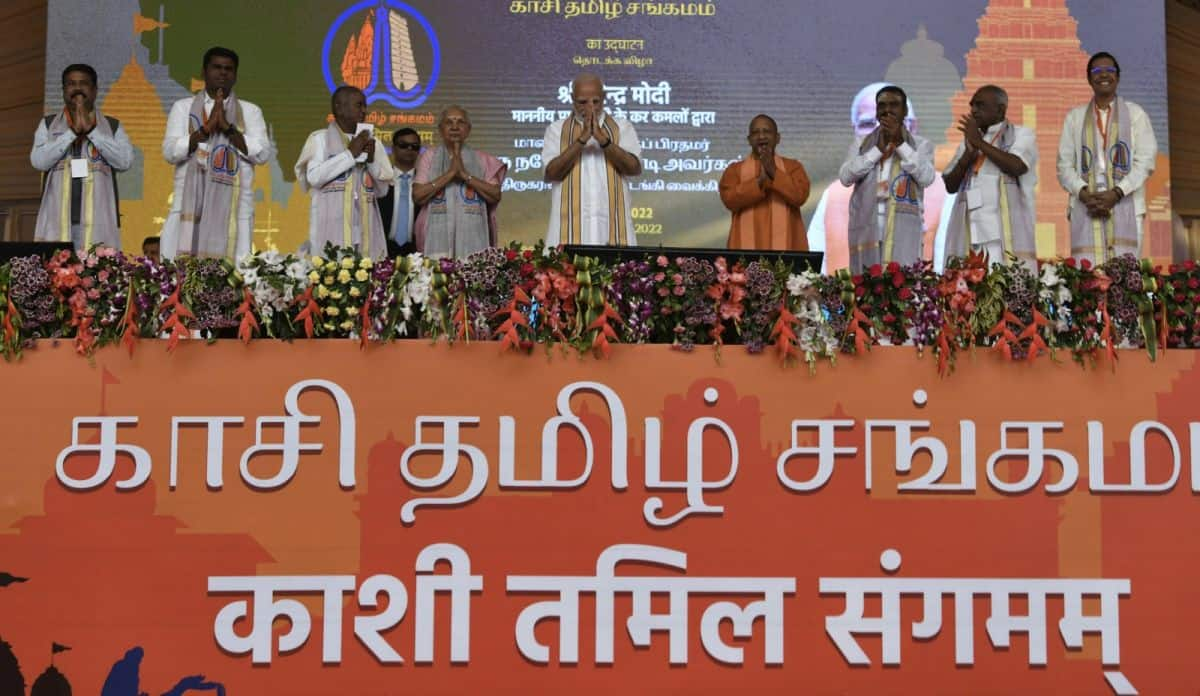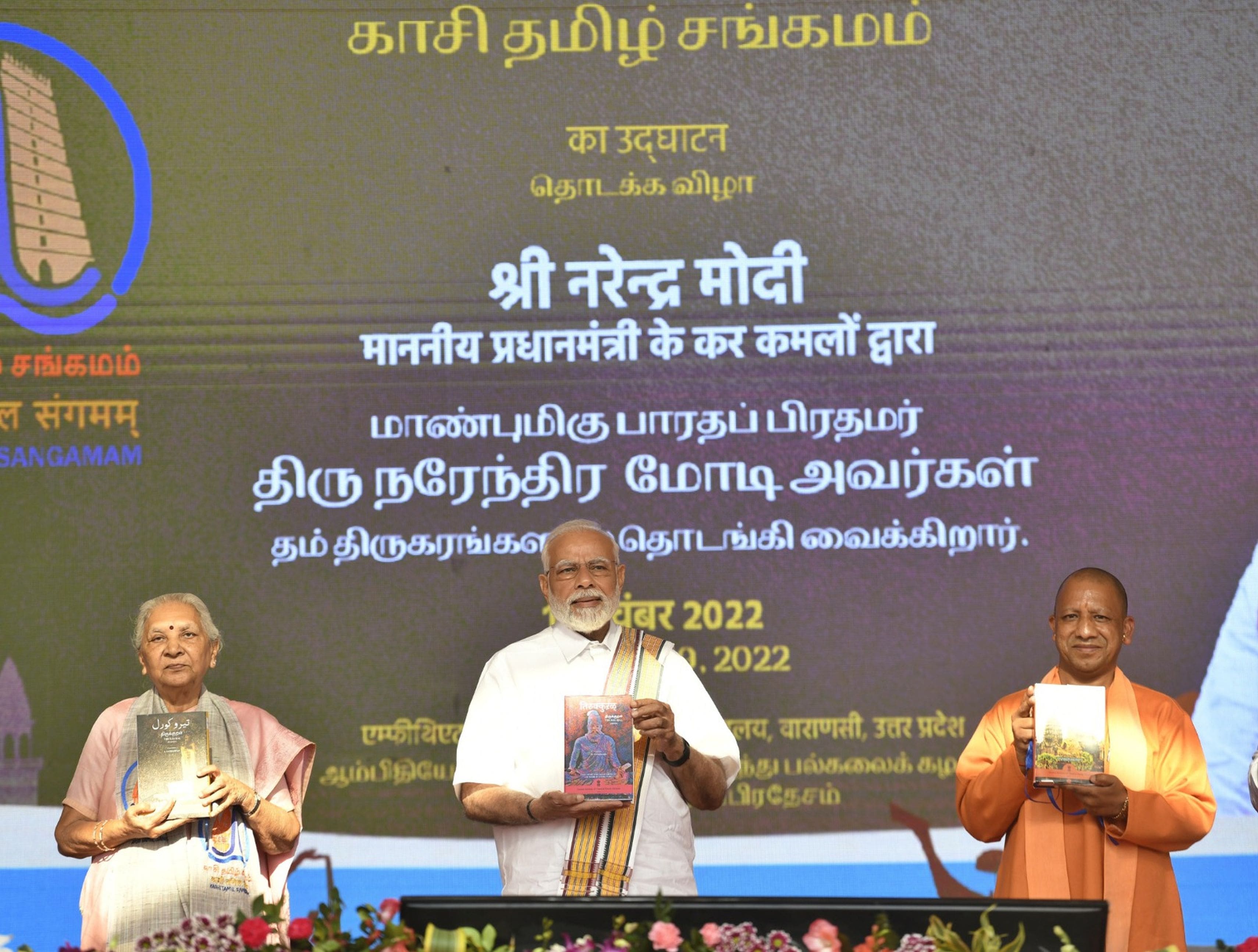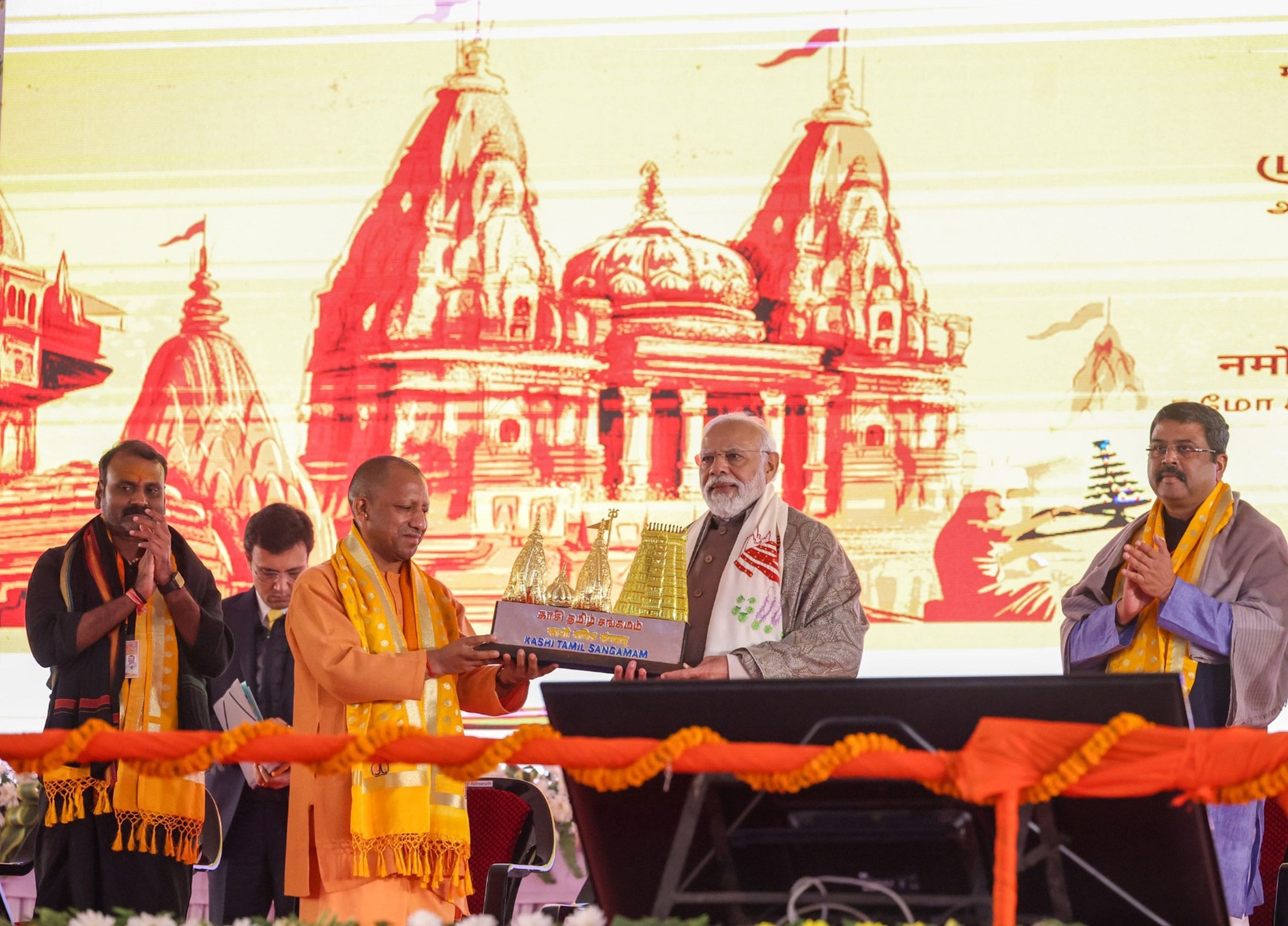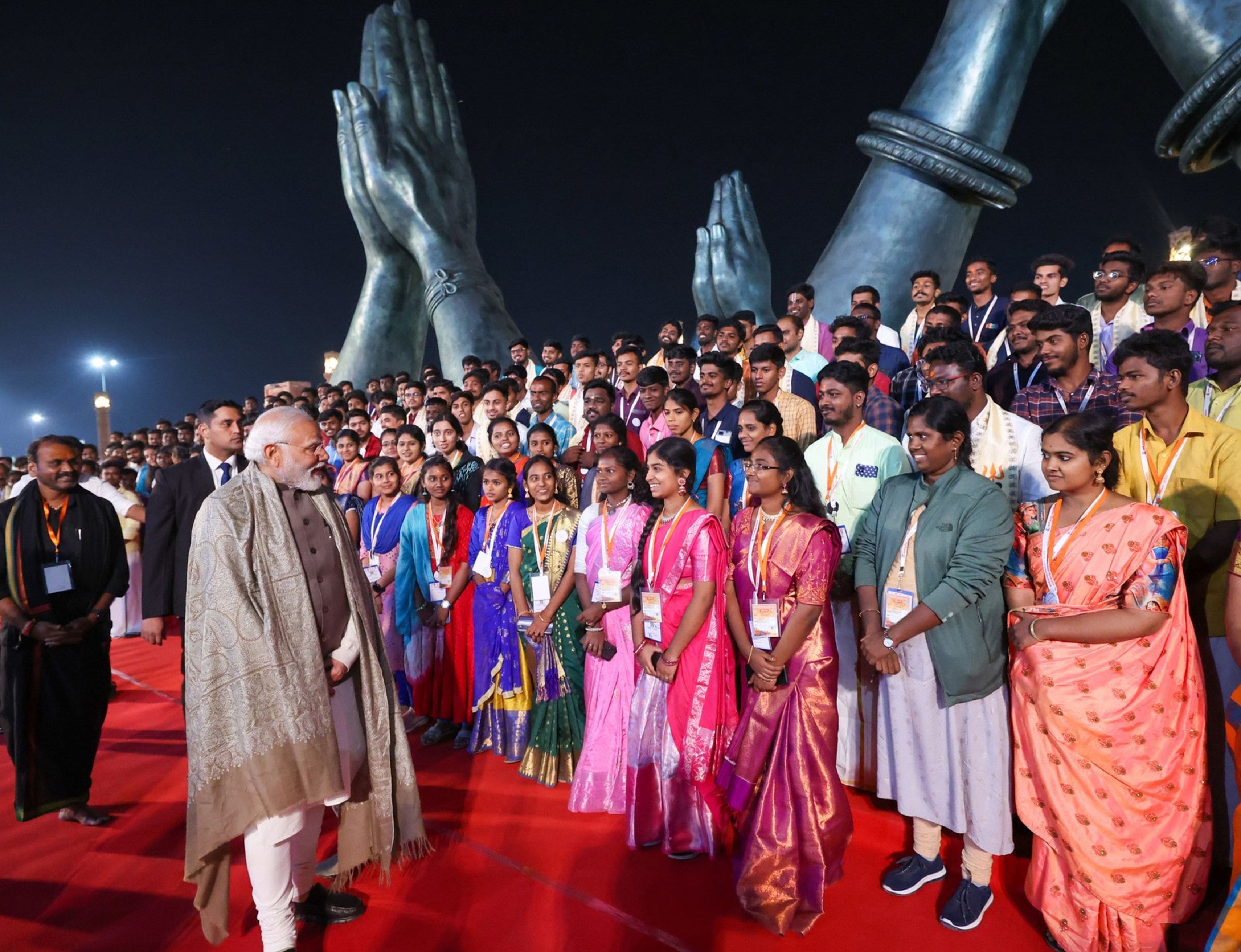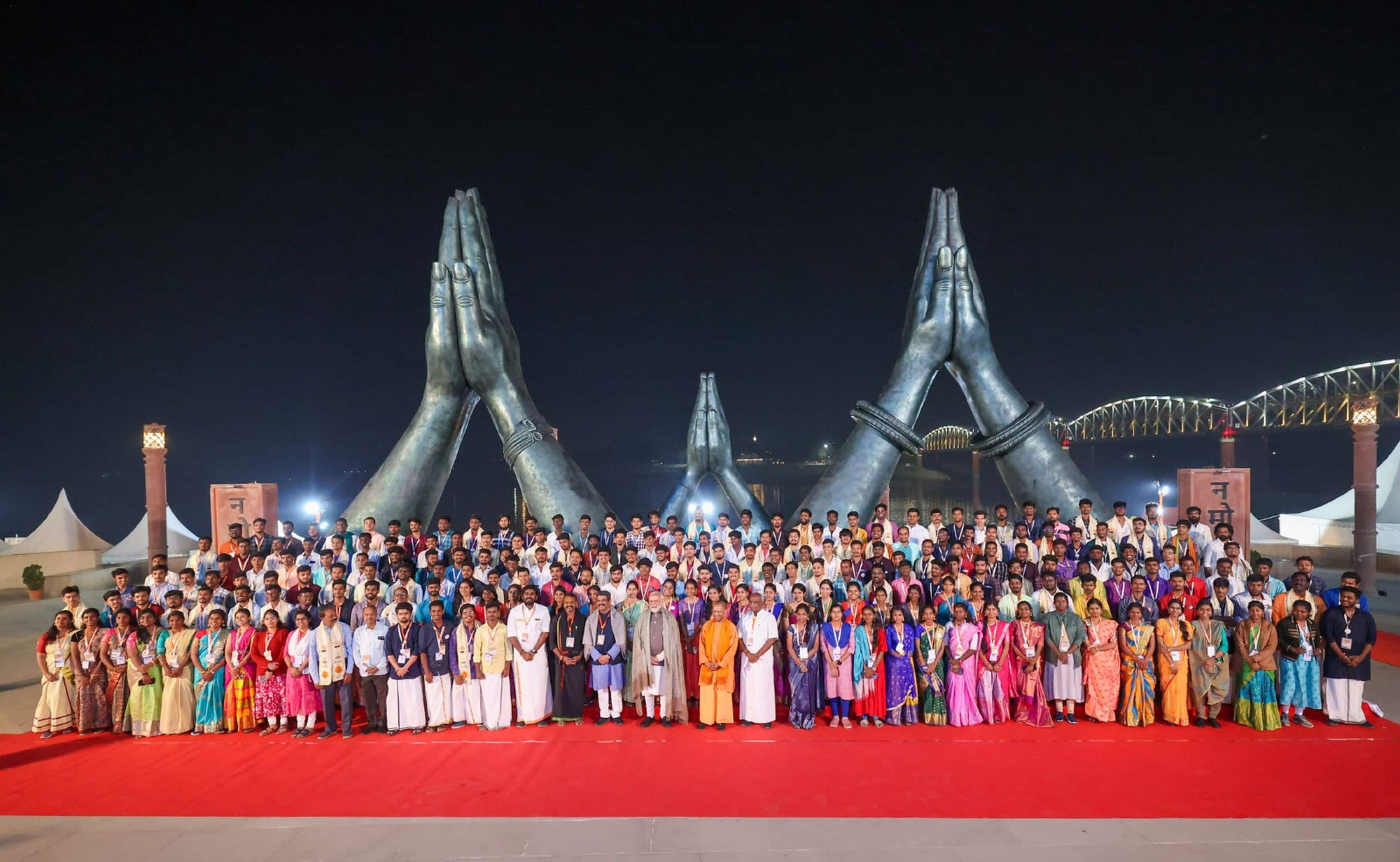A few days ago we lost Professor M.S. Swaminathan. Our nation lost a visionary who revolutionised agricultural science, a stalwart whose contribution to India will always be etched in golden letters. Prof. M.S. Swaminathan loved India and wanted our nation, and our farmers in particular, to lead a life of prosperity. Academically brilliant, he could have chosen any career but he was so impacted by the Bengal famine of 1943 that he was clear that if there is one thing he would do, it would be to study agriculture.
At a relatively young age, he came in contact with Dr. Norman Borlaug and followed his work in great detail. In the 1950’s, he was offered a faculty position in the US but he rejected it because he wanted to work in India and for India.
I want you all to think about the challenging circumstances in which he stood as a colossus, guiding our nation towards the path of self-sufficiency and self-confidence. In the first two decades since Independence, we were dealing with immense challenges and one of them was food shortages. In the early 1960s, India was grappling with the ominous shadows of famine and it is then that Prof. Swaminathan's unyielding commitment and foresight ushered a new era of agricultural prosperity. His pioneering work in agriculture and specific sectors like wheat breeding led to a significant increase in wheat production, thus turning India from a food-deficient country into a self-sufficient nation. This tremendous achievement earned him the well deserved title of, "Father of the Indian Green Revolution.”

The Green Revolution offered a glimpse of India’s “Can Do Spirit” - that if we have a billion challenges, we also have a billion minds with the flame of innovation to overcome those challenges. Five decades after the Green Revolution began, Indian agriculture has become far more modern and progressive. But, the very foundations laid by Prof. Swaminathan can never be forgotten.
Over the years, he undertook pioneering research in combatting parasites affecting potato crops. His research also enabled potato crops to withstand cold weather. Today, the world is talking about Millets or Shree Anna as super foods but Prof. Swaminathan had encouraged discourse around millets since the 1990’s.
My personal interactions with Prof. Swaminathan were extensive. They began after I took over as Chief Minister of Gujarat in 2001. During those days, Gujarat was not known for its agricultural prowess. Successive droughts and a super cyclone and an Earthquake had impacted the growth trajectory of the state. Among the many initiatives we launched, was the Soil Health Card, which enabled us to understand the soil better and address problems if they arose. It was in the context of this scheme that I met Prof. Swaminathan. He appreciated the scheme and also shared his valuable inputs for the same. His endorsement was enough to convince those who were sceptical about the scheme which would eventually set the stage for Gujarat’s agricultural success.
Our interactions continued during my Chief Ministerial tenure and also when I took over as Prime Minister. I met him at the International Agro-Biodiversity Congress in 2016 and the next year in 2017, I launched a two-part book series written by him.

The Kural describes farmers as the pin that holds the world together because it is the farmers who sustain everyone. Prof. Swaminathan understood this principle very well. A lot of people call him a “Krishi Vaigyanik” – an Agricultural Scientist. But, I have always believed that he was even more. He was a true “Kisan Vaigyanik” – a Farmers’ Scientist. In his heart there was a farmer. The success of his works is not restricted to their academic excellence; it lies in the impact they have had outside the laboratories, in the farms and the fields. His work narrowed the gap between scientific knowledge and its practical application. He consistently advocated for sustainable agriculture, emphasising the delicate balance between human advancement and ecological sustainability. Here, I must also note Prof. Swaminathan’s special emphasis on improving the lives of the small farmers and ensuring they also enjoy the fruits of innovation. He was particularly passionate about improving the lives of women farmers.
There is another aspect about Prof. M.S. Swaminathan which is remarkable - he stands tall as a paragon of innovation and mentorship. When he won the World Food Prize in 1987, the first recipient of this prestigious honour, he used the prize money to establish a not-for-profit research foundation. Till date, it undertakes extensive work across various sectors. He has nurtured countless minds, instilling in them a passion for learning and innovation. In a rapidly changing world, his life reminds us of the enduring power of knowledge, mentorship, and innovation. He was an institution builder as well, having to his credit many centres where vibrant research takes place. One of his stints was as Director, International Rice Research Institute, Manila. The South Asia Regional Centre of International Rice Research Institute was opened in Varanasi in 2018.

I will again cite The Kural to pay tributes to Dr. Swaminathan. It is written there, “If those who have planned have firmness, they will attain what they have desired the way they have desired.” Here was a stalwart who decided early on in his life that he wants to strengthen agriculture and serve farmers. And, he did it exceptionally innovatively and passionately. Dr. Swaminathan’s contributions continue to inspire and guide us as we navigate the path of agricultural innovation and sustainability. We must also keep reaffirming our commitment to the principles he held dear, championing the cause of farmers and ensuring the fruits of scientific innovation reach the roots of our agricultural expanse, fostering growth, sustainability, and prosperity for generations to come.






